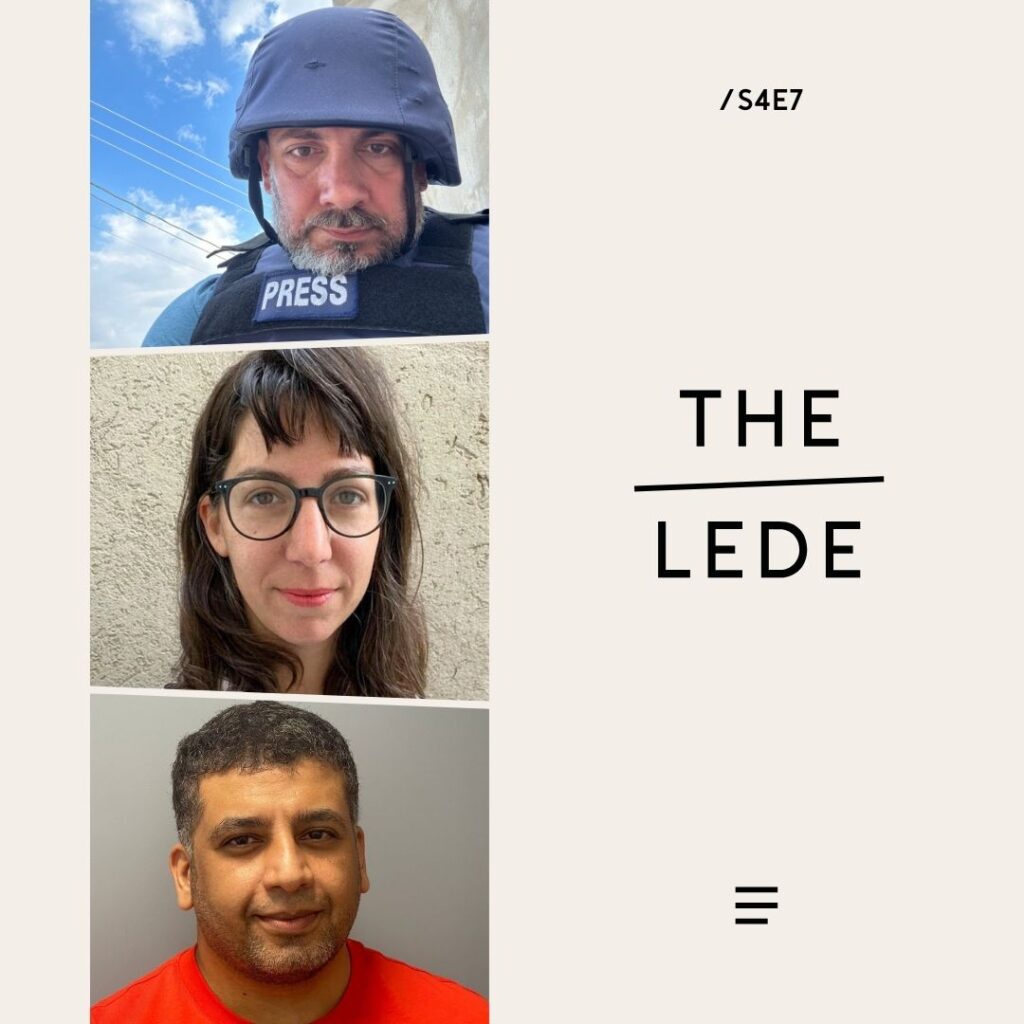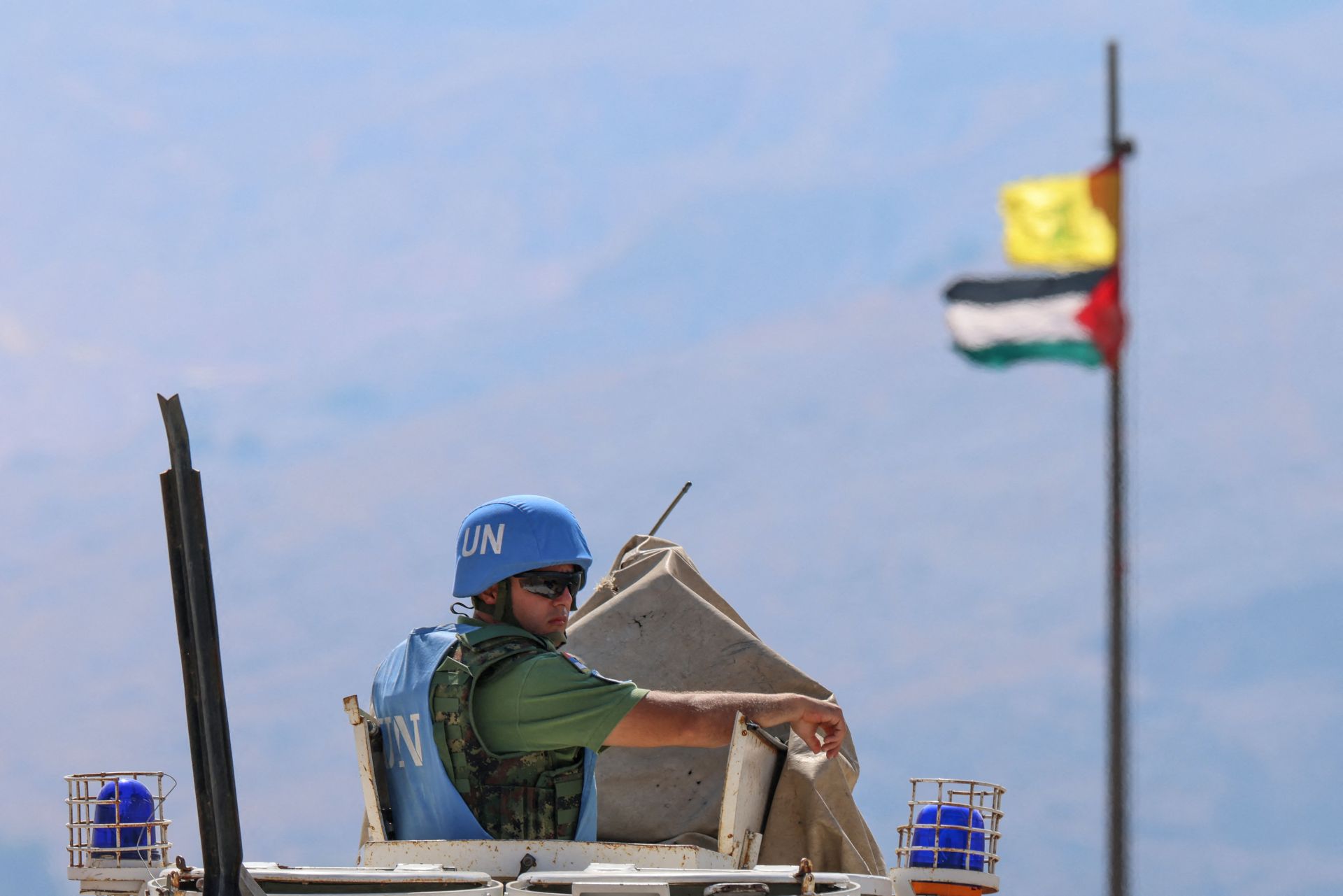On Oct. 6, Iran, Saudi Arabia and Israel were locked in a delicate diplomatic dance. A tentative normalization process between Israel and Saudi Arabia was ongoing, while in March, a Chinese-brokered rapprochement began to thaw the Saudi relationship with their common rival Iran. Meanwhile, Iran continued to expand its network of proxies throughout the region as Israel sought to contain the move through diplomatic and clandestine action.
But the events of the next day and beyond have changed everything. The magnitude of Hamas’s attacks and Israel’s response were both unprecedented and have thrown the balance of power into flux. With tensions at a high mark, an escalation risks igniting a region-wide war. As the leadership of all three countries scramble to find their footing, New Lines magazine’s Faisal Al Yafai and Joshua Martin spoke to three different analysts to break down the political and military strategies at play.

“Clearly this was a game changer.”
Iran and the ‘Axis of Resistance’
“This is unprecedented,” says Ali Hashem, a journalist for AlJazeera English and a columnist at Al Monitor. “The 7th of October attack and its implications just put aside all the rules of engagement and changed the whole situation in the Middle East.”
Speaking from Southern Lebanon, where he has reported on the escalations along the border with Israel since the start of the conflict, Hashem says that despite these exchanges of fire, Iran and its Lebanese proxy Hezbollah do not want war.
“Hezbollah is a rational player and Iran is a rational player,” he explains. “They’re ideologues, but they’re pragmatic when it comes to realpolitik.”
But, he warns, that doesn’t mean that war won’t happen, especially if Israel proceeds with a ground invasion of Gaza, which Iranian officials have warned would be a red line. “For Hezbollah, if Israel is to annihilate Hamas and take Gaza, then they are going to be next on the list — at least this is the thinking,” he says. “And this narrative is just the same narrative that the Iranians used back in 2013 or 2012 when they were trying to push forward their intervention in Syria. The Iranian supreme leader then said, ‘We’re fighting in Aleppo and Mosul so that we don’t fight in Kermanshah.‘”
Israel
Mairav Zonszein, a senior Israel analyst for the International Crisis Group based in Tel Aviv, says that part of the reason the Hamas attacks caught Israel by surprise was that the leadership had been preoccupied with violence in the West Bank and the nation’s rivalry with Iran. “Gaza was, I think, the last thing on its mind.”
But since the attacks, that has changed dramatically. “Clearly this was a game changer. It was the most horrific and in terms of numbers, the worst attack on Israel ever. And the level of trauma, and the undermining of Israel’s sense of security as the superpower in the region, cannot be stressed enough.”
Israel’s retaliation has been swift and unrelenting, killing thousands of civilians over nearly two full weeks of aerial bombardment. So far, though, the anticipated ground invasion has not gone ahead, leading some to speculate that “there could be operational reasons — maybe they’re preparing in a way that’s more strategic than we understand,” says Zonszein. “But at this point it’s very hard to know what’s happening behind closed doors. That could be because Israeli leaders themselves haven’t decided or don’t know what’s happening.”
Part of the problem, she says, is that it’s hard to disentangle military priorities from political ones. Israel’s embattled Prime Minister Benjamin Netanyahu was already unpopular before the attacks happened on his watch. “And I’m positive that his number one priority right now is his own legacy and getting himself out of this mess.”
Saudi Arabia
The normalization process between Saudi Arabia and Israel has been ongoing for many years, although it only officially began in March. But the U.S.-sponsored process has been thrown into uncertainty as the Saudi leadership appears to be reassessing its options, leading some to speculate that such an outcome may have been precisely what Hamas intended.
Aziz Alghashian, a fellow at Lancaster University’s Richardson Institute and associate fellow at Germany’s Centre for Applied Research in Partnership with the Orient, is skeptical. “Personally I don’t think that this was a direct reaction to the ongoing negotiations that were taking place,” he says.
If Saudi Arabia is reassessing, he adds, it may just be because it was never enthusiastically committed to the process in the first place. “Saudi doesn’t initiate these discussions on normalization; it’s always a reaction,” he explains. “This was an American initiative.”
There are also domestic considerations, not to mention what it might mean for Saudi influence in the rest of the Arab world, where the population is overwhelmingly sympathetic toward the Palestinian cause. “We’ve seen time and again from opinion polls that normalization is not viewed very nicely, not very well accepted. And this war is going to make it even worse.”
Still, he adds, that doesn’t mean that the scheme is dead forever. “The path to normalization was never direct anyway,” he says.
Produced by Joshua Martin


